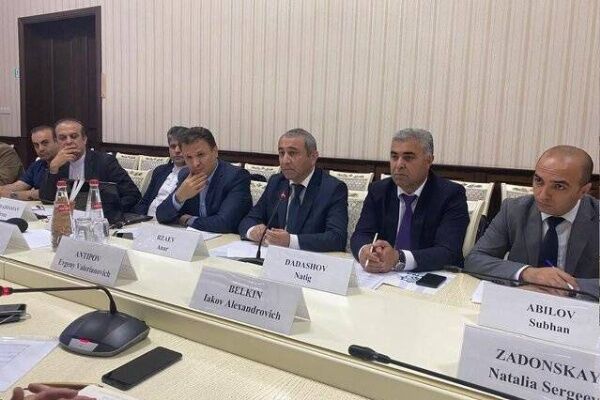Tehran, June 19, 2024 (MRUD NEWS)—Following transport cooperation of Iran, Azerbaijan, and Russia, the first high-level tripartite meeting was held at the borders of Magaramkent, Yarag-Kazmaliar, Khanoba, Tagirkent-Kaymalzar, Astara-Astara where the representatives exchanged views on various aspects of border traffic, trade and customs cooperation and border crossing particularly the deepening of transit cooperation and the development of corridors.
Hosseini Mirzaei, the deputy of border affairs at the Transit and International Transportation Bureau of Iran's Road Maintenance and Transportation Organization (RMTO), who headed Iranian delegation in this field meeting said that during this meeting, the senior representatives exchanged pragmatic and constructive views on strengthening border traffic measures and dealing with illegal border crossing arrangements.
This tripartite field visit initiative showed that Iran, Azerbaijan, and Russia are committed to strengthening relations and increasing regional cooperation for the common interests of all parties within the framework of the International North-South Transport Corridor (INSTC), he said.
The representatives emphasized the need for joint actions to strengthen road trade, using capacity of the western branch of the International North-South Transport Corridor (INSTC) and preventing unconventional actions at the borders.
The meeting also focused on examining opportunities for commercial cooperation and drawing on regional capacities in the framework of the INSTC.
The representatives exchanged views on the solutions to simplify customs procedures and reduce trade barriers to deepen the integration of road transport and facilitate transit with the aim of achieving the annual target of 15 million tons along the INSTC.
The tripartite parties also shared their initiatives regarding the coordination of border crossing projects for the diversification of transportation between these three countries and shared proposals for improving border crossing facilities, removing barriers to the use of crossings, and developing transportation routes in order to facilitate the grouping of goods and reviving transportation capacities.
Noteworthy, the next tripartite visit will review the operational progress and more precisely discuss and plan various opportunities for tripartite cooperation in the near future.
